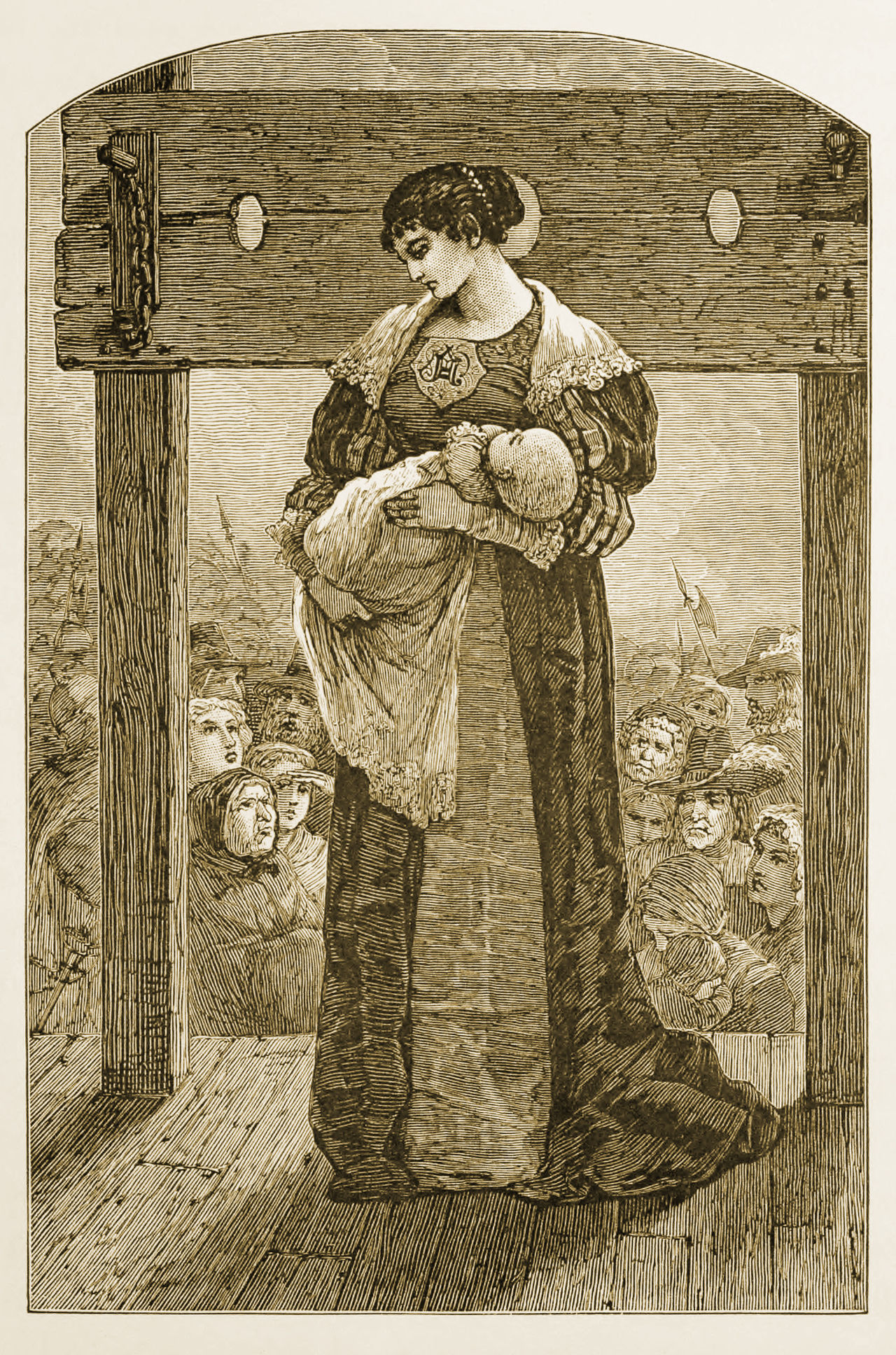What Good Does Punishment Do?
“I’m going to teach you a lesson!” exclaims an angry stranger who felt disrespected by another driver right before he pulls the trigger.
Why do we punish? Even if we understand one person’s punishing behavior toward another person, why does a society punish?
I am no expert on these questions. I invite you to ponder with me.
Doing to others as has been done to you seems ingrained in our brains. In the Bible, refuge cities that were off-limits to revenge-killing and “eye-for-an-eye” commands were meant to limit vengeance.
A society establishes rules in order to create boundaries for acceptable and unacceptable behavior. There would not be some version of the Golden Rule in every world religion if there weren’t equally universal violations of the rule. And elevating the rule as coming from a deity, as the monotheistic religions do, underscores its importance.

Hester Prynne at the Stocks—an engraved illustration from an 1878 edition of “The Scarlet Letter.” Engraved by A. V. S. Anthony, Hester Prynne & Pearl before the stocks.
In some societies, honor and shame drive behavior. If someone offends the honor of another—by stealing, slapping, killing, raping, looking at one’s kin “the wrong way,” telling a joke at the other’s expense—honor must be restored through an act of violence or through the submission of the offender to the offended. Otherwise, the offended is mired in their shame. Dueling, extrajudicial killings, feuds and the like are attempts to restore honor.
Punishing the other for their offense says something about a society’s moral order, the rules regarding what individuals owe to each other. If that moral order is violated, the violator must be punished to repair the broken order.
When White Tulsans brutally attacked Black Tulsans in 1921, the pretext was an alleged assault by a Black man toward a White woman (offense of honor). But in places such as sermons preached from a White church the following weeks, the opinions were more about how Black Tulsans “brought this on themselves” through offenses such as simply being prosperous. White Tulsans could not stand for Black people being as or more wealthy than White people. The violence was justified as actions that would restore the moral order of white supremacy.
But why does a society punish? Not every society has jails, prisons, penitentiaries, and capital punishment. Not every society has extensive systems of codified laws, police, courts, prosecutors, and judges to decide if a person is guilty of a charge and, if so, what their punishment should be.
The United States imprisons a higher percentage of individuals than any other country in the world. And we are also the developed nation with the most ostensibly religious culture. States with the highest percentage of self-identified Christian evangelicals, such as Oklahoma, punish more severely.
Despite admonitions such as “Vengeance is mine says the Lord,” one might suspect that religious people believe they are acting as God’s agents when wrongdoers are punished. When God’s moral order, which one has to believe one knows in order to enforce it, is violated, it is imperative that “justice is restored” by punishing. Thus, in places such as Oklahoma, we pass laws to punish everyone associated with the “offense” of abortion, try to undo federal protections for those who do not identify as straight and cisgendered, and seek to carry guns anywhere at any time because someone might seek to violate one’s right to stand one’s ground.
All moral claims. All associated with warrants to punish.
Well, here is my fundamental question: what good does all this punishing really do?
I get the emotional satisfaction of returning hurt for hurt, of “besting” someone who has offended me. That emotional satisfaction is often portrayed in movies where the hero finds and kills the lawbreaker when official channels could not reach the perpetrator. And the audience applauds “justice” being done.
In today’s debates about what justice means, “restorative justice” is a phrase used by advocates for a community-based approach focused more on penance than punishment. But in popular culture and in the halls of justice, restorative justice means making right through perpetrators getting what they “deserve” and victims getting “satisfaction.”
What good does punishment do for any of us, offenders and offended alike? Does punishment lead to a beloved community, to a peaceful and prosperous society, to one’s free pursuit of happiness (a good life)? If so, then we in the United States should be the most peaceful, just, beloved society the world has ever seen.
Some people are dangers to society; society should be protected from them. Someone who robs or murders or assaults or defrauds should face meaningful consequences. But whatever is fundamentally wrong with American society will not be fixed by more punishment. Paraphrasing Einstein: the system that created the problem will not yield the answer to the problem.
What would create a more humane and godly moral order is yet beyond our nation’s grasp and vision.
Dr. Gary Peluso-Verdend is president emeritus at Phillips Theological Seminary and is the executive director of the seminary’s Center for Religion in Public Life. The opinions expressed in this blog are those of the author. Learn more about the Center’s work here and about Gary here.


Comments are closed.